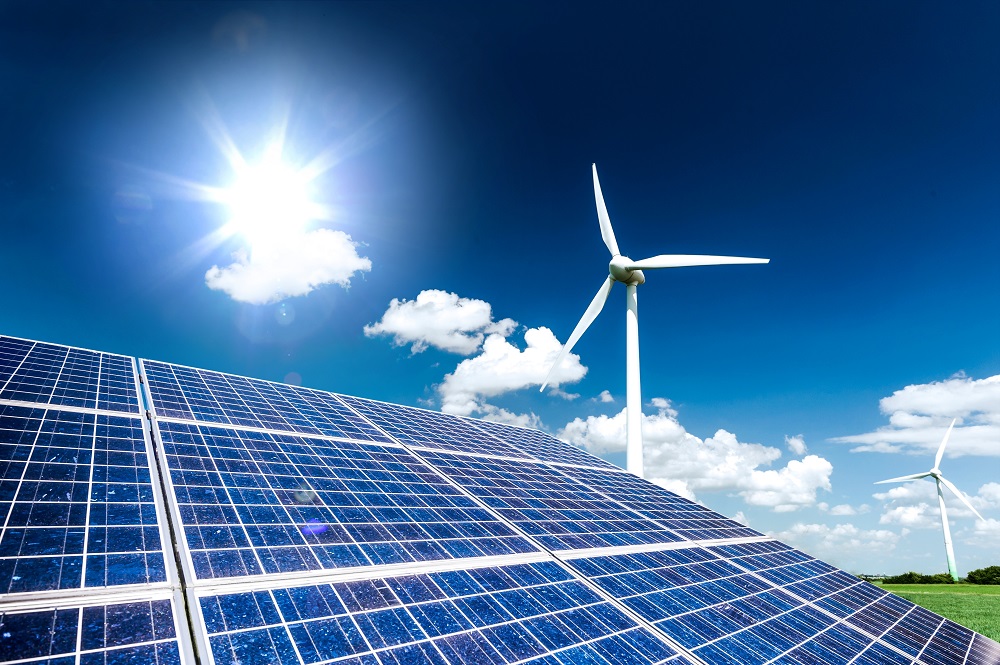09.03.2022
EEG 2021 Easter Package – new stimulus for the expansion of solar and wind energy?

Speeding up again of the energy transition and removal of barriers to the expansion of renewable energies - these declarations of intent regarding energy policy set out in the coalition agreement are likely to have pleased representatives of the wind and solar energy sector in particular.
The Federal Government now wants the announcements to be followed by action in the form of, inter alia, amendments to the Renewable Energy Sources Act 2021 (Erneuerbare-Energien-Gesetz, EEG). Federal Minister Robert Habeck announced nothing less than a realignment of Renewable Energy Sources Act before Easter. A draft bill for this “Easter Package” is now circulating, which, besides a package to accelerate the growth in solar energy , i.e. increased tender volumes for solar energy systems in particular, also contains other interesting changes.
Some of the changes concern the clarification of the importance of the expansion of renewable energies that had already been indicated in the coalition agreement. Because many solar energy, but especially wind energy, projects are delayed by lengthy and complex planning and approval procedures, the aim is to now ensure that these are speeded up through enshrining “the priority of renewable energies” in law.
It is planned to amend Section 2 of EEG 2021 (draft) such that, instead of the general principles listed therein, it would be stipulated in future that the construction and operation of renewable energy facilities including auxiliary systems are “in the overriding public interest” and “protect public security”. The draft therefore explicitly builds on existing regulations, e.g. in the Grid Expansion Acceleration Act Transmission Grid (Netzausbaubeschleunigungsgesetz Übertragungsnetz, NABEG).
By defining renewable energy as being in the overriding public interest and protecting public security it is intended that, where this has to be balanced with other legally protected interests by public authorities (in particular nature and the landscape), the particularly high weighting of renewable energies must be taken into account. Renewable energies are to be treated as a matter of primary importance when weighing up protected assets until greenhouse gas neutrality is achieved.
However, it is doubtful whether a priority enshrined in law will actually achieve the desired result, as case law already recognises in principle that the expansion of renewable energies is in “the public interest”. The reasons of “public interest” and “public security” also constitute fundamental exceptions with regard to the conservation of nature and species. For example, exceptions to the prohibitions set out in the Federal Nature Conservation Act (Bundesnaturschutzgesetz) may be permitted, inter alia, for compelling reasons of “overriding” public interest.
“Simple” public interest is, however, often not sufficient to overcome concerns regarding nature conservation. An abstract priority is not accorded per se on a case-by-case basis to climate protection concerns in the EEG over the (specific) nature conservation concerns in previous case law of the administrative courts in particular. The Federal Constitutional Court (Bundesverfassungsgericht) also recently stressed in its decision regarding the Climate Protection Act (Klimaschutzgesetz) that the obligation to take climate action as set forth in Section 20a of the Basic Law (Grundgesetz, GG) also does not take absolute priority over other interests in the constitutional weighing of interests.
However, such priority would at least be enshrined in law in the EEG 2021 by the proposed amendment to Section 2 EEG (draft). Under this amendment the expansion of renewable energy as being in the “overriding public interest” would have to be included in the balancing deliberations, inter alia, vis-à-vis seismological stations, preservation orders, radar installations, the landscape or in the legislation regarding forestry, immission control, the conservation of nature, construction, transport or water. According to the legislator there will be in future little leeway due to the priority enshrined in law for approval to be refused for a project by referring to an insufficient degree of public interest or for lack of a priority enshrined in law. In this respect, the legislator appears to want to accord importance to the statement also made in the BVerfG’s decision regarding the Climate Protection Act, whereby the relative weight of the obligation to take climate action will steadily increase in the balancing deliberations - also with the concerns regarding the conservation of nature and species. The new fundamental priority accorded to the expansion of renewable energies in the EEG might therefore be a step in the right direction. It remains to be seen how public authorities and courts will react.
According to the current plan the “Easter Package” is to be discussed by the cabinet ideally in April and the legislative process is to be completed before the summer recess. Parts of the amendments would at any rate again require state aid approval from the European Commission. That this is issued in 2022 would appear to be at least realistic if the amendments are adopted before the summer recess.
The idea to enshrine the priority of renewable energies in law is not new. A “public interest” and the importance for “public security” was also to have been laid down in the EEG 2021 in the form of a new Section 1 (5) in the EEG for the purposes of accelerating the expansion of renewable energy installations. The grounds for the draft bill in fact assumed at that time an “overriding public interest”. However, Section 1 (5) EEG 2021 (draft) was not included in the final adopted version of EEG 2021, bur was taken out during the legislative process. The reason for its deletion was that the great importance of renewable energies had already been enshrined in the EEG and the great importance of climate protection and the associated expansion of renewable energies is also provided for under national and European law. It is therefore open whether the now planned new version of Section 2 EEG 2021 (draft) will be actually approved.
If the legislation enters into force as planned, the intended “priority of renewable energies” would have to be consistently adhered to and implemented in the regulatory planning and approval processes but also by the courts. Ambitious targets set for energy transition remain all too often mere paper tigers. Only if the previously in part lengthy balancing of interests can be significantly shortened in practice by the Easter Package and other legislative measures, would the intended drastic acceleration of the expansion of renewable energies by the Federal Government be actually achievable.
If you wish to continue to remain informed of current developments in the energy sector, please register for our newsletter. Luther also regularly conducts “SolarTalks” webinars on different topics relating to the solar economy. We would gladly add you to the invitation list. In order to do so, simply get in touch with the authors or send an e-mail to contact@luther-lawfirm.com with the reference “Inclusion on the distribution list for the SolarTalks webinars”.

Benedikt Rechner
Counsel
Berlin
benedikt.rechner@luther-lawfirm.com
+49 30 52133 14078
Denise Helling